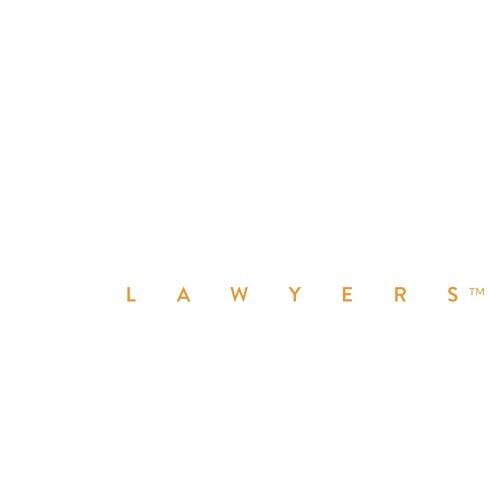Best Hiring & Firing Lawyers in Windhoek
Share your needs with us, get contacted by law firms.
Free. Takes 2 min.
List of the best lawyers in Windhoek, Namibia
About Hiring & Firing Law in Windhoek, Namibia
Hiring and firing laws in Windhoek, Namibia are governed by the Labour Act of 2007, which outlines the rights and obligations of both employers and employees. The Act aims to create fair labor practices and ensure a balanced relationship between them. Employment practices must comply with the provisions of the Act, which cover aspects like employment contracts, employee rights, anti-discrimination policies, notice periods, and severance pay. Employers must also adhere to any industry-specific regulations and collective agreements that may apply.
Why You May Need a Lawyer
There are several situations where legal assistance may be crucial when navigating hiring and firing issues in Windhoek, Namibia. If you are facing a dispute regarding employee rights, wrongful termination, discrimination, or breach of employment contract, consulting a lawyer can help protect your interests. Employers may also require legal guidance to ensure compliance with local labor laws, to draft employment contracts, handle termination procedures correctly, or resolve disputes through mediation or litigation.
Local Laws Overview
The Labour Act of 2007 is a cornerstone of employment law in Namibia. Key aspects include:
- Employment Contracts: Must be drafted in clear language and outline terms such as job description, salary, working hours, and other essential conditions.
- Termination: Notice periods are mandatory based on the duration of employment. Reasons for dismissal must be valid and fair.
- Severance Pay: Employees are generally entitled to severance pay upon termination after a certain period of employment, except in cases of misconduct or retrenchment.
- Discrimination: Prohibited on the basis of race, gender, religion, disability, or other protected attributes.
- Employee Rights: Includes rights to fair wages, safe working conditions, and participation in trade unions.
Frequently Asked Questions
1. What constitutes wrongful termination in Namibia?
Wrongful termination occurs when an employee is dismissed without a valid reason or without following proper procedures as defined by the Labour Act.
2. Are probationary periods allowed for new employees?
Yes, probationary periods are permissible and must be clearly stated in the employment contract. The duration should be reasonable, generally not exceeding six months.
3. What notice period applies for termination?
The notice period depends on the length of employment, typically one week for less than four weeks of employment, and up to one month for longer durations.
4. Can an employer terminate employment without notice?
Termination without notice is only allowed in cases of gross misconduct where the employee violates the company's rules severely.
5. How is severance pay calculated?
Severance pay is generally calculated based on the length of service. Employees are entitled to at least one week’s wages for each year of continuous employment.
6. What steps should be taken if an employee faces discrimination?
Employees should file a complaint with the Labour Commissioner. If unresolved, the matter may proceed to the Labour Court.
7. Are employers required to provide written contracts?
Yes, employers must provide written employment contracts which detail the terms and conditions of employment.
8. Can employees join trade unions?
Yes, employees have the right to join trade unions and participate in collective bargaining. Employers cannot discriminate against employees for this reason.
9. What is the role of the Labour Commissioner?
The Labour Commissioner assists in resolving employment disputes through mediation, arbitration, and when necessary, recommending cases to the Labour Court.
10. Is training on workplace safety mandatory?
Yes, employers are required to ensure that employees receive adequate training on workplace health and safety to minimize risks.
Additional Resources
For more information and assistance, individuals can reach out to the Ministry of Labour, Industrial Relations, and Employment Creation, the Office of the Labour Commissioner, and various trade unions. Legal aid organizations may also offer support to those who cannot afford private legal services.
Next Steps
If you require legal assistance regarding hiring and firing in Windhoek, Namibia, consider the following steps:
- Contact a lawyer who specializes in labor law to discuss your case.
- Gather all relevant documents such as contracts, termination notices, and correspondence.
- Prepare to provide a detailed account of the situation to your legal advisor.
- Consider alternative dispute resolution methods such as mediation before opting for litigation.
Seeking knowledgeable legal counsel early can help ensure your rights are protected and increase the likelihood of a favorable outcome.
Lawzana helps you find the best lawyers and law firms in Windhoek through a curated and pre-screened list of qualified legal professionals. Our platform offers rankings and detailed profiles of attorneys and law firms, allowing you to compare based on practice areas, including Hiring & Firing, experience, and client feedback.
Each profile includes a description of the firm's areas of practice, client reviews, team members and partners, year of establishment, spoken languages, office locations, contact information, social media presence, and any published articles or resources. Most firms on our platform speak English and are experienced in both local and international legal matters.
Get a quote from top-rated law firms in Windhoek, Namibia — quickly, securely, and without unnecessary hassle.
Disclaimer:
The information provided on this page is for general informational purposes only and does not constitute legal advice. While we strive to ensure the accuracy and relevance of the content, legal information may change over time, and interpretations of the law can vary. You should always consult with a qualified legal professional for advice specific to your situation.
We disclaim all liability for actions taken or not taken based on the content of this page. If you believe any information is incorrect or outdated, please contact us, and we will review and update it where appropriate.















